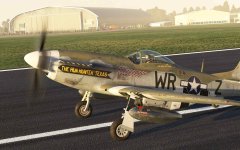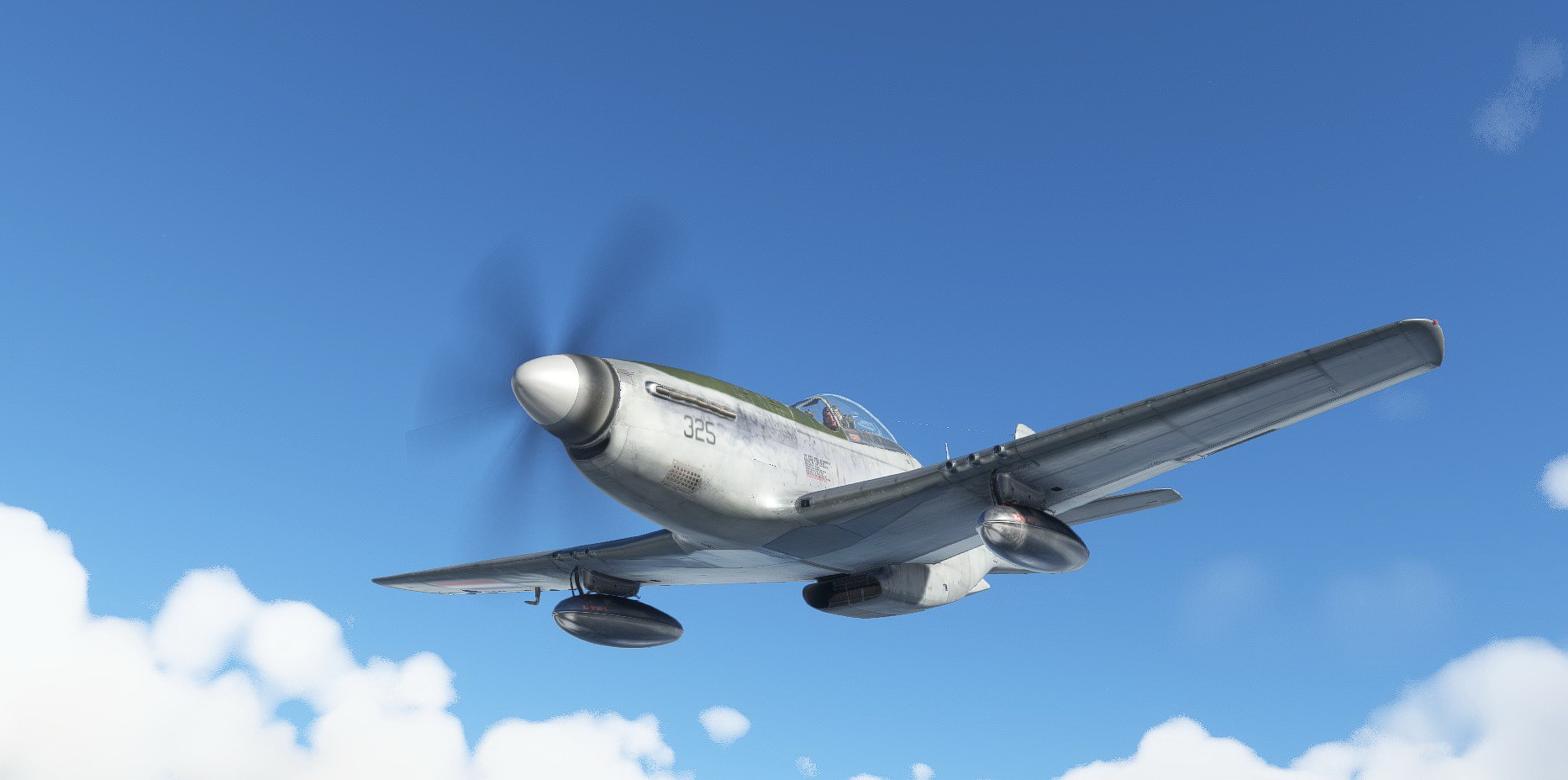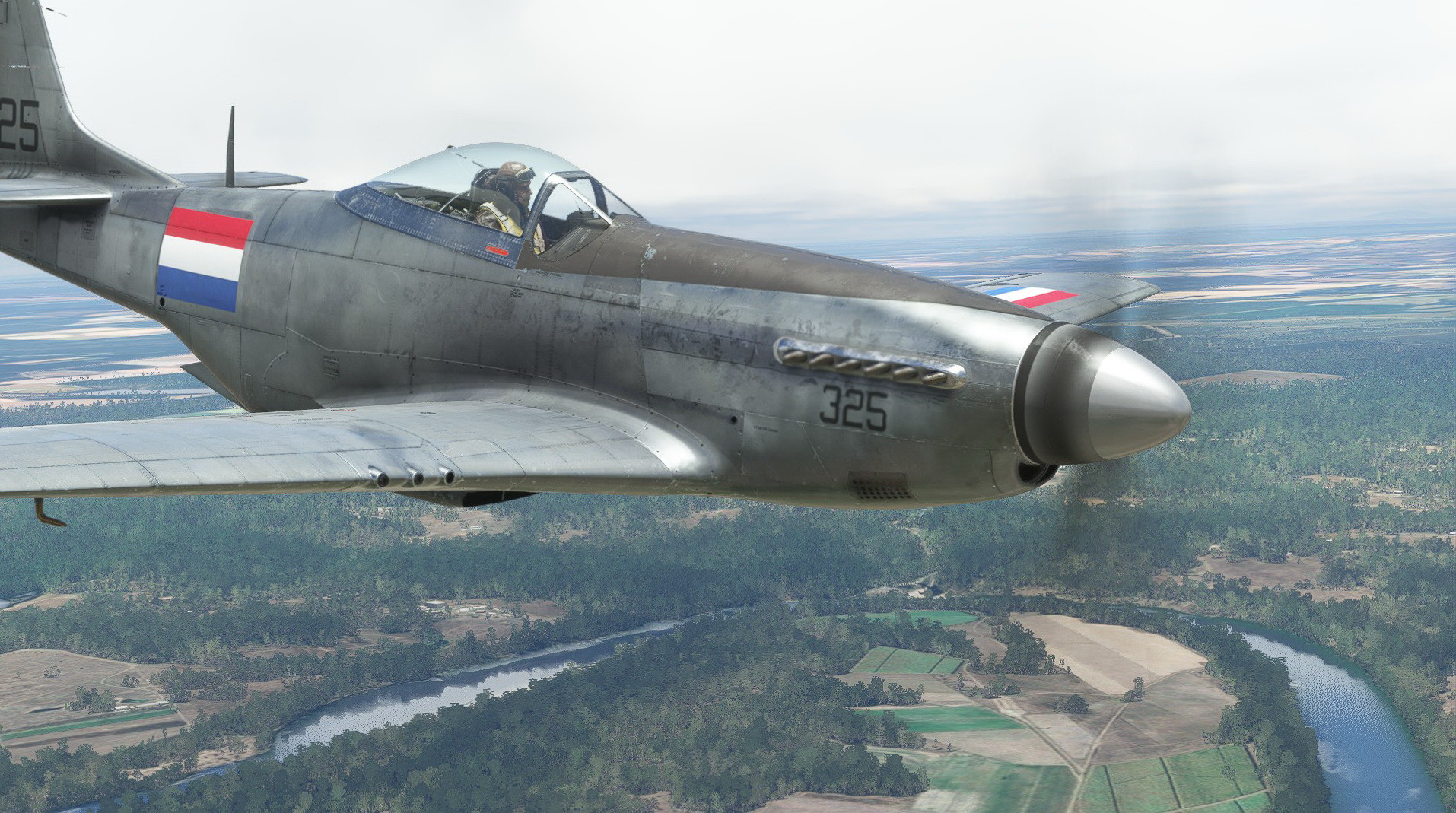-
There seems to be an uptick in Political comments in recent months. Those of us who are long time members of the site know that Political and Religious content has been banned for years. Nothing has changed. Please leave all political and religious comments out of the forums.
If you recently joined the forums you were not presented with this restriction in the terms of service. This was due to a conversion error when we went from vBulletin to Xenforo. We have updated our terms of service to reflect these corrections.
Please note any post refering to a politician will be considered political even if it is intended to be humor. Our experience is these topics have a way of dividing the forums and causing deep resentment among members. It is a poison to the community. We appreciate compliance with the rules.
The Staff of SOH
You should upgrade or use an alternative browser.
Aeroplane Heaven P-51D released
- Thread starter ColoKent
- Start date
collensr
SOH-CM-2025
I didn't say "HGU-55", as that won't solve the problem, really...Would not work for the 1950s/60s schemes. We'd need an HGU-2/P for that. And BTW...private owners have used the HGU-2/P for decades as well...so we could scratch that itch too. I know many are "BEMHO" (look up the definition if you are interested) over the HGU-55 because is the "latest and greatest bitchin'-a$$" modern-day jet fighter helmet...but unless AH did both the -2/P and the -55, we'd still be stuck where we basically are now...with WWII or current day (albeit sans helmet)....Agree that other than civilians in the 60s, you almost NEVER see a civilian owner not wearing a helmet...
Just my .02 cents.
***EDIT*** Collensr: See there? Didn't make a difference anyway...didn't think it would...
Kent
It don't stop me trying my friend!
After the terrible P-51D accident here in the UK a few years back most warbird pilots here are either wearing the modern grey kevlar helmets (of the HGU-55 ilk) or the hard shell, brown leather covered helmets which look very similar to that on the stock AH P-51 pilot figure. Critical too to wear fireproof overalls with gloves.
In the US you still see the odd tee shirt/baseball cap warbird jocks (e.g. Kermi) but they are taking a big risk.
K5083
SOH-CM-2024
What if engine sounds were created by simulation instead of by recording RL planes? Build a simulated aero engine, with all the right cylinder sizes and placements, firing order, each little combustion, exhaust size and shape, etc. to simulate the physics of the engine sounds being produced.
I see the following advantages for flight sims:
- Sounds can be created in your basement, no need to go out and record actual aircraft, the model can even be used to synthesize sounds for engines that don't exist in running condition any more, as long as you know the physical parameters
- Model can be endlessly tweaked and improved until you and customers are satisfied without the need to go out and re-record in higher fidelity or whatever
- Any mode of engine operation can be simulated including those not practical to sample in RL (a P-51 engine at 30" and 2400 rpm sitting on the ramp does NOT sound the same as one flying at 300 mph and there is no good way to record the latter)
- Iterative testing would teach a lot about what really matters in simming engine sounds, e.g., does the accuracy of the individual cylinder firing sound really matter or is the sequence and timing in which it is played much more important
And I see drawbacks
- It would take a long time to develop the basic model
- Sounds might have to be compiled into the same looping audio files we are used to because of sim limitations rather than being real-time dynamic in-game
- Some might complain that the end product sounds too synthetic, like in music synthesis where there are some who believe that to synthesize a violin, you still have to start by going out and sampling a real Strad
In a quick google, I see that there are people working on this, especially for driving sims, and even a few commercial products out there. Some of these do not really try to model the engine physics to generate the individual component sounds, e.g. one cylinder firing, but they use algorithms to combine those sampled or otherwise generated sounds for the most realistic effect.
https://www.youtube.com/watch?v=7APK2RuTzZc
https://scholarsmine.mst.edu/cgi/viewcontent.cgi?article=8574&context=masters_theses
http://tsugi-studio.com/blog/2018/05/01/real-time-synthesis-of-engines/
August
One correction about the Swastika's for the Classics Hangar models by Mathias Pommerien. Classics Hangar has never released any textures which swastikas. I have uploaded textures with swastikas for one sets here at the SOH and for the other sets Alassandro Biaggi made textures available at Wings and Coffee. In both cases Classic Hangar was not involved in any way.
Germans rules are strict and are enforced.
And now back to the Mustang and hopefully a lot of screenshot!
Cheers,
Huub
He tends to be one of the more reliable reviewers.
T43
https://www.youtube.com/watch?v=5RydECBK82A
Personally I think the Germans and Austrians are entitled to choose their own government which provides them their own rules and legislation. In fact by saying these rules are stupid you are insulting quite some German and Austrian voters. With the increase of extreme right wing extremism it would not surprise me when other countries will follow.
One correction about the Swastika's for the Classics Hangar models by Mathias Pommerien. Classics Hangar has never released any textures which swastikas. I have uploaded textures with swastikas for one sets here at the SOH and for the other sets Alassandro Biaggi made textures available at Wings and Coffee. In both cases Classic Hangar was not involved in any way.
Germans rules are strict and are enforced.
And now back to the Mustang and hopefully a lot of screenshot!
Cheers,
Huub
A little bit of work with GIMP and a first historical modification has been done (for personal use only). Pick up a digital paint brush and you can do it yourself.

jankees
SOH-CM-2025
 jk1082 by JanKees Blom, on Flickr
jk1082 by JanKees Blom, on Flickr jk1084 by JanKees Blom, on Flickr
jk1084 by JanKees Blom, on Flickr jk1089 by JanKees Blom, on Flickr
jk1089 by JanKees Blom, on Flickr jk1091 by JanKees Blom, on Flickr
jk1091 by JanKees Blom, on Flickr jk1092 by JanKees Blom, on Flickr
jk1092 by JanKees Blom, on Flickrstill haven't found the blank textures that are supposed to be in the texture.base folder though..

Really blows the Asobo Mustang's doors off - sounds? With headphones and remembering you would be wearing a helmet, I think they are OK.
A few niggles hopefully to be sorted
- altimeter calibration - the needles spin around like crazy doing aerobatics
- engine probably too powerful, goes TOO FAST

- handling maybe too easy, the Mustang was an energy fighter, this one turns with a Spitfire

- in multiplayer close-to the flaps are down (TBC that it happens every time)
Fussing about it is about as useful as what this guy is doing. ->
A guy in a bar was doing exactly that all the time, banging his head against the wall. One of the other guests couldn't stand it any longer and walked up to the headbanger : " Why on earth are you banging your head against the wall !!?? " Whereupon the headbanger replied : " Why ??... Because it feels so good when i stop doing it.. ".
jankees
SOH-CM-2025
 jk1141 by JanKees Blom, on Flickr
jk1141 by JanKees Blom, on Flickr jk1143 by JanKees Blom, on Flickr
jk1143 by JanKees Blom, on Flickr jk1144 by JanKees Blom, on Flickr
jk1144 by JanKees Blom, on Flickr jk1146 by JanKees Blom, on Flickr
jk1146 by JanKees Blom, on Flickr jk1148 by JanKees Blom, on Flickr
jk1148 by JanKees Blom, on Flickr jk1149 by JanKees Blom, on Flickr
jk1149 by JanKees Blom, on FlickrI've deleted the Asobo Mustang, although this one sounds like a cement mixer with a bad cold, in all other aspects it's soo much better...and paintable..
bazzar
Charter Member 2018
Into The Blue Simulations has had a look at it.
He tends to be one of the more reliable reviewers.
T43
https://www.youtube.com/watch?v=5RydECBK82A
Anybody having problems taking off , flying and landing our P51, I would sincerely suggest watching this. That is the best takeoff in an MSFS tail-dragger I have yet to see. Beautiful flying.

dcc
P-38 nut
We like to depict these icons as they were in their heyday. Always have always will. That's our "priority"
Sounds.
This is, perhaps the most hotly discussed and debated subject in this game. With the change to WWise use and production comes a torrent of problems for developers. The learning curve for sound production is extensive to say the least. Sound is subjective too. We have many customers who like our sounds others who don't. WWise appears to have become the "new black" buzzword for people. Many have no idea what it means or could care less. If the writing on the box does not say WWise then the product is c/*!p. End of. Seriously?
Professional WWise sound production is very expensive to buy. Believe me, we are employing the best out there on the DC-3 right now. If we believe the budget and sales potential of a product warrants it, we will use a sound studio without question. But there are two main issues. 1) development time increases by some months and 2) product prices will have to rise to assist with recovering costs. Like the sound studios themselves, we run a business and need to maintain a reasonable profit. Otherwise there is no point in any of this.
If there are sound designers who want to work with us and can do this stuff, please contact me. I am serious.
As a sound professional, I concur with your comments. As someone with experience using Wwise (and one of its competitors FMOD) in professional training simulators (not flight sim, for what its worth) it's painful to see so many not fully understanding what Wwise is and what it isn't. It's a great new sound engine for FS but as Fnerg said, and I completely agree, the crux of the matter is the source material -- good, high fidelity recordings made under the right conditions with good equipment, and processed for computer audio systems. All that is expensive. I'm confident a quality sound set using legacy method could be built and people would think it was Wwise if they didn't look under the hood or expect the features that just do not exist in legacy (such as the low-pass filter dynamically applied when closing a window, etc.)
If I had more time on my hands I might be tempted to get back into FS sound design and contact you (you may recall I did a sound set or two for AH back in the day). Perhaps when I retire ... I figure MSFS may be a stable title by then

- dcc
jankees
SOH-CM-2025
 jk1160 by JanKees Blom, on Flickr
jk1160 by JanKees Blom, on Flickr jk1180 by JanKees Blom, on Flickr
jk1180 by JanKees Blom, on Flickr Clip_21 by JanKees Blom, on Flickr
Clip_21 by JanKees Blom, on Flickreg find [FLTSIM.1] and replace Sound=""
with Sound="\..\..\Asobo_P51D_Reno_Common\sound\"
and select that repaint...compare by swapping with a different repaint.
No other changes needed.
TBH I think the AH internal sounds are best, the Asobo externals best, and as a VR flyer I'm 99% internal so I'll stick with AH.
collensr
SOH-CM-2025
Anybody wanting to try a different soundset just edit a sound= line in aircraft.cfg to point to the Asobo p51
eg find [FLTSIM.1] and replace Sound=""
with Sound="\..\..\Asobo_P51D_Reno_Common\sound\"
and select that repaint...compare by swapping with a different repaint.
No other changes needed.
TBH I think the AH internal sounds are best, the Asobo externals best, and as a VR flyer I'm 99% internal so I'll stick with AH.
Many thanks Keith very helpful
jankees
SOH-CM-2025
 Clip_24 by JanKees Blom, on Flickr
Clip_24 by JanKees Blom, on Flickr jk1203 by JanKees Blom, on Flickr
jk1203 by JanKees Blom, on Flickr jk1215 by JanKees Blom, on Flickr
jk1215 by JanKees Blom, on Flickrcollensr
SOH-CM-2025
Anybody wanting to try a different soundset just edit a sound= line in aircraft.cfg to point to the Asobo p51
eg find [FLTSIM.1] and replace Sound=""
with Sound="\..\..\Asobo_P51D_Reno_Common\sound\"
and select that repaint...compare by swapping with a different repaint.
No other changes needed.
TBH I think the AH internal sounds are best, the Asobo externals best, and as a VR flyer I'm 99% internal so I'll stick with AH.
Keith what goes in the "\..\..\" part of the new text please?


